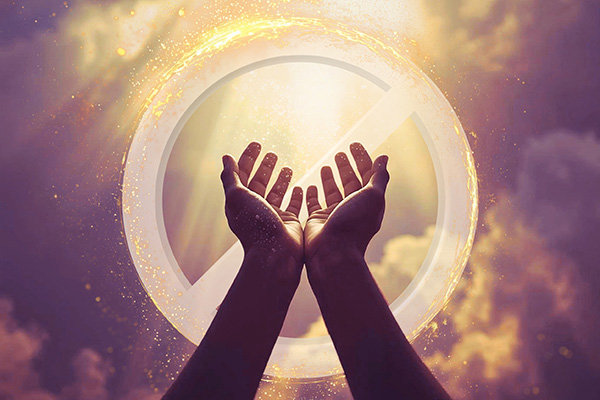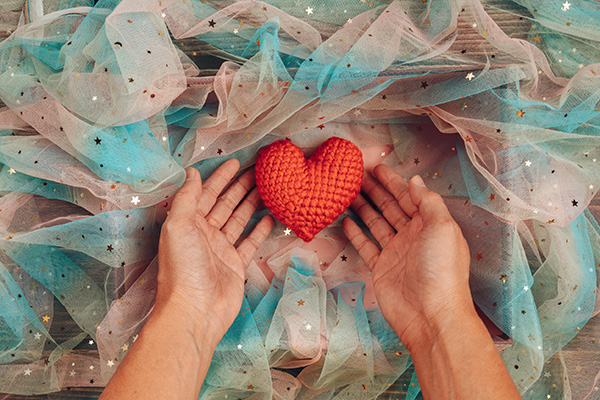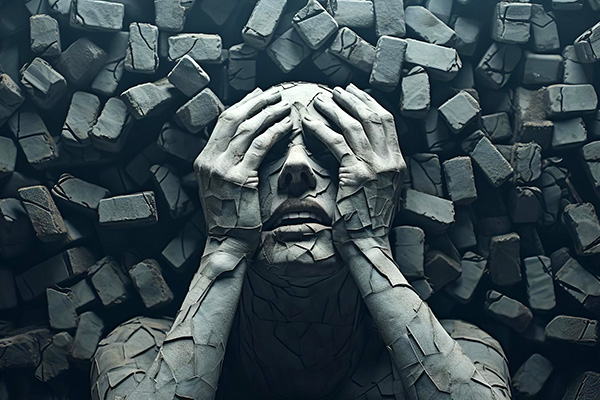self-importance
Are You Erasing Your Blessings?
 The unselfish gifts of our time, money, and resources as well as our labors of love bring us many blessings in this lifetime and the next.
The unselfish gifts of our time, money, and resources as well as our labors of love bring us many blessings in this lifetime and the next.
When we are kind and generous to others, we are also showered with good fortune in return. We know this from the ‘golden rule’ of ‘do unto others’ found in many religions and spiritual traditions.
Buy I have read for many clients over the years who are kindhearted and loving people, but complain about their life being very difficult and deprived. They never have enough money, or they cannot find love, or health and well-being seem to evade them. “I am always helping others, but I get nothing in return,” they might say.
Why is this the case? Why are these generous, caring people not being blessed more often for their good deeds?
Well, my guides have made the spiritual cause of this very clear to me. It is my understanding that we do not only add items of charity and compassion to the list of entries on our ‘chalkboard,’ but we also delete or erase them!
You see, when we do a good deed, it gets added to our list of potential ‘return blessings.’ But, if we go around bragging about it, boasting, showing off, telling people how generous or kind we have been, those good deeds become nullified, neutralized, erased. It loses its metaphysical power and spiritual meaning. It can no longer bless us in return.
Breaking Through The Walls Of Disconnection
Have you felt like you have been talking to brick walls in your relationships lately? If so, rest assured that you are not alone! This issue has been coming up more and more in my readings. Many of my clients complain that they feel like they are not being heard or that they are simply not getting through to people.
Many factors contribute to this feeling. With so many of us addicted to our phones and social media, it’s become very easy to be physically present but mentally elsewhere. This often makes any attempt to have a meaningful conversation feel like it’s taking place in an echo chamber.
We are surrounded by so many distractions these days — constant notifications, endless scrolling, and click-bait videos that often prioritize drama and misinformation over truth and depth. These distractions pull our attention away from what really matters: meaningful connection, both with others and with ourselves.
Modern life is busy and demanding. People are constantly juggling many responsibilities and stresses, and often feel drained or overwhelmed. Many of us rarely have the emotional bandwidth to fully engage in meaningful conversations.
On top of that, people are less likely to have face-to-face conversations, or at least make a phone call, as most communication these days takes place via text messages and social media comments. As a result, there is a growing lack of communication skills and many misunderstandings occur because people have difficulty expressing themselves clearly or actively listening when they are actually having a conversation in person.
The Spiritual Importance Of Releasing Resentments
 I went out for lunch today and had a bad service experience with the waitress. It was as if she didn’t care much to listen to what I wanted. She seemed distracted and careless.
I went out for lunch today and had a bad service experience with the waitress. It was as if she didn’t care much to listen to what I wanted. She seemed distracted and careless.
Two and a half months ago, I had a similar experience at another restaurant when the server packed the wrong items for me to take home. I felt ignored, even disrespected. Today’s experience brought back the same feelings and memories.
I was so upset that I decided I was not going to leave her a tip. But then, in the middle of my meal, while feeling angry and somewhat sorry for myself, I overheard a nearby customer calling her friend by the same name as my late mother.
This caused me to pause and reflect on my toxic thoughts about the careless waitress. You see, my mother was also a waitress many years ago. It was how she put food on the table and put us through school.
Perhaps today’s events were meant to remind me during the holiday season how many of us go through life with unhealed “mother wounds.”
Spirit now had my attention and proceeded to make me aware that my waitress had her own issues with her mother growing up, and that she is now a single mother herself, barely making ends meet. This realization instantly changed my perspective and my petulant attitude.
Spiritual Self-Care Or Ego Indulgence?
 Spiritual or metaphysical practice is a pursuit designed to help bring greater meaning and fulfillment to our lives. It is a lifestyle that requires us to be very honest with ourselves and very intentional about the choices we make. But lately I’ve seen a lot of discourse around spirituality that basically encourages you to do pretty much whatever you want in the name of ‘free will’ and ‘self-care.’
Spiritual or metaphysical practice is a pursuit designed to help bring greater meaning and fulfillment to our lives. It is a lifestyle that requires us to be very honest with ourselves and very intentional about the choices we make. But lately I’ve seen a lot of discourse around spirituality that basically encourages you to do pretty much whatever you want in the name of ‘free will’ and ‘self-care.’
Free will is sacred. Yes, it’s true that we are divine, spiritual beings who get to enjoy this incredible adventure of physical life. We get to choose how we move in the world, what we want for ourselves, and how we want to live. But there are two sides to this coin. Yes, we can choose what we want to manifest and how we wish to live our lives, but that does not absolve us of our karmic responsibilities and the consequences of our actions.
I’ve written before about karma and how it’s not meant to be a punishment, but rather a teacher. There are to metaphysical laws that are the basis to our karmic responsibility in this lifetime, namely the universal law of cause and effect and the spiritual law of karma.
The universal law of cause and effect is that for every action there is a reaction. There is a natural order in the universe in which our actions always have consequences, both good and bad.
The spiritual law of karma is a more specific application of the law of cause and effect. According to this law, the totality of our actions in this life, as well as all of our past lives, determine our future. This means that our actions create the conditions for our future experiences, both good and bad.
Be The Change You Wish To See In The World
 Our co-created world has always been full of woes and challenges. To ignore these difficulties is irresponsible, but to focus obsessively on it creates more of the same. So, how can we possibly affect real, meaningful change in the world as mere individuals?
Our co-created world has always been full of woes and challenges. To ignore these difficulties is irresponsible, but to focus obsessively on it creates more of the same. So, how can we possibly affect real, meaningful change in the world as mere individuals?
The answer is simple: we must take personal responsibility for the choices we make, and be intentional about how we are living. In other words, we must begin with ourselves, instead of trying to change everyone else and the world around us.
Our power to make change in the world comes down to taking responsibility for that which we do have control over – ourselves. Change begins in our own backyard.
Rather than pointing out how others might improve, we should focus on what is within our own power to improve. It doesn’t matter how small these changes may be. Once we make a start to improve aspects of our own life, it becomes like a domino effect.
Making improvements in your own world, whether it be cleaning up that pile of junk that’s been cluttering up your home, or dealing with internal ‘junk’ that no longer serves you, will improve your own existence and experience. In turn, simply by doing this for yourself, you may find you inspire others to do the same.
At the very least it will help to improve your own energetic flow and raise your own vibration. You can then take this positive new vibration with you everywhere you go, and it will influence and bless every interaction you have with others.
How To Deal With Toxic People
 Toxic people can be incredibly difficult to deal with in both personal and professional relationships and can be detrimental to your personal happiness and well-being.
Toxic people can be incredibly difficult to deal with in both personal and professional relationships and can be detrimental to your personal happiness and well-being.
A toxic person is someone whose constant negativity and dysfunctional behavior causes drama in your life and drains you energy whenever they are around. Typical toxic traits include negativity, cynicism, apathy, lack of self-awareness, arrogance, entitlement, self-centeredness, domineering behavior, lack of empathy, being judgmental, dishonesty, anger outbursts, to name only a few.
The most extreme forms of toxicity includes personality disorders like antisocial, borderline, histrionic, and narcissistic personality disorder. A personality disorder is a rigid, deeply characteristic way of thinking, feeling and acting that severely affects the person’s mental well-being, personal relationships and social life.
Toxic people can however be tricky to identify at first, as their dysfunctional traits and behaviors can be very subtle. Some of them are also very good at ‘gaslighting,’ which makes interacting with them even more treacherous.
Gaslighting is a very toxic form of manipulation, game playing, or crazymaking in which you are constantly being misled, confused, lied to, and made to question your own truth and reality. You increasingly feel unsure about the accuracy of your own memories regarding certain events and your personal opinions and perceptions of the world. You may even begin to think that you are to blame for the toxic person’s actions, or that maybe something is very wrong with you, or worse, that you are losing your mind.

